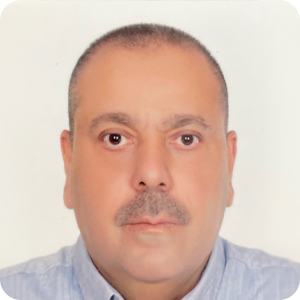Among the largest agencies in the international development sector is the Japan International Cooperation Agency (JICA). Operating in more than 150 countries, JICA’s main goal is to foster socio-economic development through project implementation in sectors such as infrastructure, health, education, agriculture, and environment among others. While the competition for landing a job with JICA can be fierce, experts with the right qualifications and skills can find positions ranging from entry-level roles to the more advanced. If you are interested in working at JICA, check out some invaluable tips from current and former employees of this development agency.
Key Takeaways:
- Effective communication, attention to detail, strong teamwork ability, the capacity to follow organizational rules and regulations, project experience and language proficiency are the major skills required to start a career with JICA.
- In the selection process, some advantages include being a national citizen of the recipient country, having recommendations from previous JICA missions, and proficiency in English and Japanese culture.
- While most positions are temporary, working with JICA offers opportunities for skill development, competitive remuneration, and a chance to contribute to impactful projects globally.
- In 2023, Japan allocated approximately US$17.520.2 billion in Official Development Assistance, constituting 0.3944% of its Gross National Income (GNI).
DevelopmentAid: What major skills and requirements are necessary to start a career with JICA?

“As a Program Officer at the JICA Sudan office, I found that essential skills and prerequisites for a role at JICA include effective communication, attention to detail, strong teamwork ability, adherence to high ethical standards, the ability to follow organizational rules and regulations, and proficiency in English, as well as strong skills in the main regional language – Arabic. Proficient communication is particularly vital, given the extensive internal collaboration and external engagement with stakeholders and counterparts. The role demands seamless teamwork due to the high level of coordination required with colleagues across departments. Upholding high ethical standards and strict adherence to regulations is extremely necessary as this contributes to the smooth and effective functioning of the organization and helps to streamline processes while creating a conducive work environment. Language proficiency is imperative for effective communication with international colleagues and local partners.”

“Relevant project experience, especially in leadership roles, is crucial. JICA’s evaluation system allocates points across 1) company project experience, 2) project implementation strategy, and 3) individual’s project experience, with a recent emphasis on strategic and methodological contributions in 2). Language proficiency is a must, with certification required unless one is a native speaker. A TOEIC (the Test of English for International Communication) score of 880 is highly regarded, but practical experience often demands higher proficiency. Advanced degrees or related qualifications that ensure expertise relevant to the project are necessary.”

“To work with JICA, you have to consider the following points:
- Working in projects as support staff, you should be a national citizen in the recipient country, and no other nationalities are allowed while the official team members formulated by JICA are Japanese in general with some exceptions.
- The selection of national staff for the JICA country office or any JICA project will be made according to experience in the field of work.
- Usually, the selected candidate is taken upon strong recommendation from a previous JICA mission or the counterpart team. So, recommendation is very important.
- Selected candidates should be professional in English.
- Selected candidates should know something about Japanese culture and social life and should be ready to adapt to the Japanese context for work (such as long working hours and working over weekends).
- Selected staff should work to gain the trust of the JICA team through hard work and dedication to the work.
- The selected candidate should prove dedication to work, working under pressure, teamwork, and a commitment to work in parallel with the counterpart of the recipient country.
- All financial documents of the project are usually in Japanese language and usually not shared with the national staff, so only Japanese members are aware of all the legal and financial issues.
- Most of the Japanese ODA projects are implemented in a short time and there is competition among Japanese companies for the implementation period of the project, so the implementation schedule of any project is tight and short.
- JICA projects have no deviation in either budget or timeline, so any of these deviations should be made in a separate request from the recipient country and this needs to have a separate budget approved by the Japanese Government. So, national JICA staff should understand this idea in case they are asked by the counterparts from the government.
- National staff should have good coordination skills to facilitate the smooth implementation of the project.”

“To start with, a good understanding of cooperation, as well as coordination. Those specializations need to be identified and coordinated for specific projects.”
DevelopmentAid: What are the challenges to be faced when applying for a JICA position?

“Navigating the competitive landscape of JICA’s application process presents a primary challenge, where aligning one’s skills and experiences with the job description is crucial. Given the high volume of applications received, the key is to stand out by clearly demonstrating how one’s skills align with the position and emphasizing the potential contributions one can make.”

“Applicants from non-Japanese consulting firms or those without a presence in Japan should consider partnering with local firms through joint ventures or subcontracts, due to JICA’s bilateral assistance nature and the requirement for a certain number of Japanese nationals in projects. Familiarity with JICA’s unique contract and operational guidelines, which are often in Japanese, is essential for smooth client communication.”

“Understanding the specific corporate/project/assignment need and tailoring one’s CV and application accordingly.”
DevelopmentAid: How do you prepare for a JICA interview?

“Based on my experience, preparing effectively for a JICA interview involves several key steps. First and foremost, it is necessary to thoroughly acquaint yourself with both the organization and the job you are applying for. This includes gaining a comprehensive understanding of JICA’s mission, vision, values, and the intricacies of the role in question. A proactive approach to interview preparation entails a thorough review of common interview questions for similar positions. Accessible through various online sources, these questions serve as a valuable resource for crafting well-thought-out responses that articulate how your unique experiences and skill set align with the job requirements. I advocate for developing answers for each common potential question before the interview and dedicating time to practicing your responses, ensuring polished and effective communication during the actual interview. Take advantage of the opportunities to spotlight relevant contributions from your previous roles, illustrating how these experiences position you as a highly competitive candidate for the prospective position. Additionally, it is advisable to formulate a set of insightful questions to ask during the interview. These questions should not only reflect your genuine interest in the position but also serve as a means to gain a deeper understanding of the role, ultimately aiding in your decision-making process to assess if the position will be a great fit for you.”

“One should understand that interviews are not always required, being more common for larger projects. Presentations should be clear and avoid jargon, as evaluators may not be experts in the field. Be prepared for in-depth questions about your approach and innovations based on past experiences during the Q&A sessions.”

“To be ready for an interview for any JICA position, you have to prepare yourself in the following:
- Good communication skills in English
- Good understanding and background of the project
- Listen well to the interviewer and try to understand the context of the project
- Salary expectations should be similar to other JICA project salaries or the candidate knows the salary scale is acceptable
- Recommendation from a colleague or previous staff who have previously worked for JICA
- Understanding the general procedures of the ODA (mentioned in the first paragraph)
- Understanding the mechanism of the work in the recipient agency”

“Conduct media research on the project you are applying to and conduct test runs with people familiar with the topic.”
DevelopmentAid: What are some mistakes that young professionals make when applying for a JICA position?

“Common pitfalls include failure to align CVs with the job description, utilizing generic CVs and cover letters, overlooking research about the organization and the role, and neglecting to showcase a commitment to continued development and improvement. Additionally, not adhering to application instructions, and errors such as misspellings or improper grammar can significantly impact the evaluation of an application.”

“Young professionals with limited experience should consider starting as part of a firm or as a local consultant rather than applying as individuals. Building connections with relevant ministries or consulting firms in the project country can open opportunities for direct contracts as a local consultant.”

“Some young candidates usually make some mistakes in the interview or during the work with the JICA team. My experience shows that it is better to heed the following:
- Punctuality because Japanese are very punctual in time
- Don’t interrupt any Japanese member speaking and try to always listen and if you have any better ideas being a national of the country, try to say “you are right but I think, this might be better from the social perspective”
- When speaking to a colleague in the office, try to speak in a low tone and don’t use your national language a lot, usually you might be asked about that conversation.
- Do your work and consult with your supervisor
- Don’t discuss your financial matters with colleagues and other team members. This has to be raised with the team leader only.
- Respect Japanese culture and read about it. You will be appreciated more if you know more about that culture.

“Primarily not becoming familiar with corporate framework objectives.”
DevelopmentAid: What are the main challenges and benefits of working for JICA?

“Reflecting on my personal experience, the benefits of a JICA career far outweigh the challenges. Contributing to local impact and addressing national challenges in my own country imparts a profound sense of purpose. There are various opportunities for skills development in program and project management, communications, logistical support, procurement, and other areas as well. JICA’s commitment to staff development through training and capacity-building initiatives is an additional benefit, alongside travel opportunities. Working alongside international colleagues provides a rich cultural exchange, fostering a deeper understanding of diverse cultures. A stable work environment, competitive remuneration, and association with a reputable international organization offer a sense of job security. One challenge faced by staff engaged in development and emergency response projects may revolve around effectively balancing concurrent tasks in both areas. However, engaging in projects aimed at improving lives and building resilience in communities is a source of satisfaction and accomplishment.”

“JICA operates in over 150 countries, tackling a wide range of development issues (from conventional infrastructure to DX), which offers profound learning and skill development opportunities. The agency’s intricate contract and reimbursement processes can be daunting, potentially diverting time from core development tasks. Working for JICA is rewarding, reflecting Japan’s commitment to peaceful international relations and its transition from a recipient to a donor country.”

“In general, working with JICA will give you good technical experience and teach you about regional planning (JICA project usually tackles regions) and will help you to be a good planner who puts forward integrated solutions. JICA is an agency with a good reputation and Japan ODA is classified as one of the most benefited funds in the world. The challenges of working under JICA projects:
- The recruitment is temporary and very few staff are recruited on fix term base (at the country office)
- JICA teams for project implementation usually work for 8-9 months/year, so staff have to expect some days off and staff are paid per working day.
- Only nationals of the recipient countries are allowed to work, while residents are not allowed to even if they are experienced.
- Salaries of national staff are considered according to the cost of living in the recipient country and usually they are fair, but not as good as EU project salaries.
- Tight schedules and long working hours to meete deadlines.”

“Very reputable international organization, effective project selections and good product delivery.”
Securing a position at JICA can be a challenging process. Having a strong background in international development, as well as possessing both hard and soft skills, and familiarity with different languages and the Japanese culture, can be the ticket to landing a job opportunity here. With DevelopmentAid Professional and Professional Plus Membership, you won’t miss any opportunities because you’ll have full access to all JICA’s job openings, tenders, grants for individuals, and other useful information.

